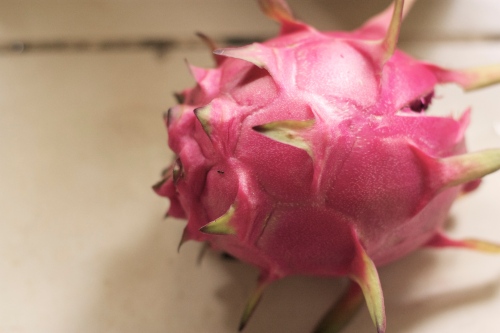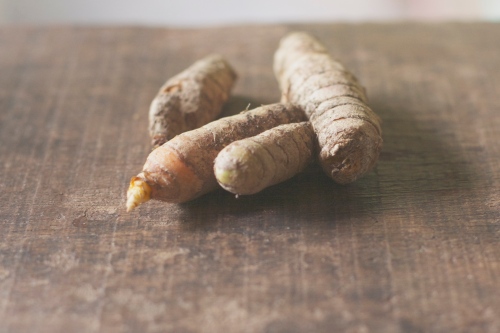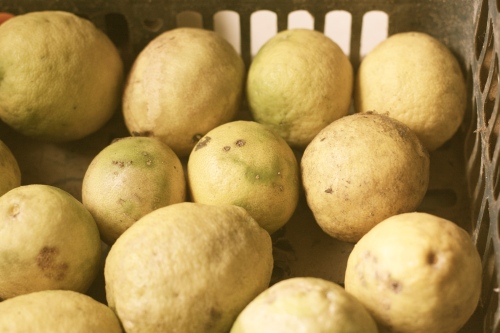Malaysia, The City and The Jungle
A black sky was awash in a broad ban of light above the city’s towers, the Petronas Twins making glittery interest of the otherwise banal skyline when the plane touched down in Kuala Lumpur. It was my first visit to Malaysia. I’d written directions to my hostel on a post-it that I clutched in my left hand all the way through immigration. The train station at the city center was desolate and seedy. It was place to avoid after dark as a solo female traveler, but we were delayed leaving Seoul, so there I was, pack strapped to my back, a ‘best not fuck with me’ look on my face. No one took much interest besides a harmless cab driver who insisted on calling me Baby. I gave up on the directions and asked two women for help. When I turned the wrong way, one of them chased after me and righted my path, and I could have kissed her. Fifteen minutes later, I was sitting at a restaurant across the street from the hostel while rickety fans swept the woody smells of Indian curry through the open-air space. A dollar was all for a giant, warm garlic-mottled naan, mint chutney and tomato curry on an aluminum platter, spotless when I was finished. A pair of British couples lounged over beers on one side, and a Malay man smoked and drank tea alone on the other.
The next morning, I road the train to meet Ami. She’s married to Ladya, and they live about three hours outside of Kuala Lumpur on a permaculture farm in the middle of the jungle. I planned to take a bus to their farm the next day, and because she was two weeks away from the due date of their first baby, she was staying back in the city with her family. I hadn’t known she was pregnant until I climbed into the passenger seat of her car. She was good and up for the outing, she insisted. She drove us to a wet market where Chinese stalls bumped against Malay stalls, where fresh fish were spread across packed ice and pork was kept from plain view out of respect for working and visiting Muslims. Baskets of exquisitely fresh and local fruits and vegetables were laid out for shoppers to pick and taste, and I remembered my mom’s habit of sampling grapes at the grocery store before she’d buy them. When I was young, I never saw anyone else do that.
Showstoppers, bushels of mangosteen and rambutan seduced first with their sexy husks hiding soft white fruits, simple as their shells were complex. Smells of hot mint, kaffir lime and durian soaked the air. We stopped for soy milk pudding layered with liquid palm sugar. For lunch, we ate rice doused with hot vegetarian sambar, and curries, chutney and pickled peppers mounded next to crackly papadum that we broke apart with our hands. Banana leaves are said to enrich the flavor of the food they touch, and as a nod of appreciation to the cooks, we folded the leaves in half toward us when we could eat no more. I asked Ami if Malaysia had always been a place of such celebrated coexistence. I’d never been anywhere and seen the kind of respect for multiple religions and ethnicities as in Malaysia, whereby this country’s mash-up of culture results in a rich culinary landscape unlike any other place in the world.
That afternoon, I checked into the next hostel of the trip and ran into Wojcech at the front desk. We’d met for a minute the night before and discovered we were staying at the same hostel that second night. He was from Poland and traveling on a break from an MBA program at Harvard. To even the score a little, I told him my grandmother had been Polish, and she’d taught me a small but useful string of words, one of which was dupa, which means butt. He asked me why I was in Malaysia. Research, I said. Instead of going for a graduate degree in food studies, I’d opted to study independently. And that’s true. I don’t know what he thought of that plan, but he seemed to like the idea of spending the afternoon eating our way through Kuala Lampur’s outdoor markets. So we did.
It was dusk when we passed the front gates of Masjid Jamek, a one hundred year old mosque at the epicenter of Kuala Lumpur. The muezzin’s voice split through the loudspeakers of a minaret above to blanket the air with sacred, mystical call to prayer. Motorbikes tore up and down the road at our backs, fuming and swirling city grit, and a line of men waiting for Friday prayers snaked around the corner without an endpoint in sight. Right there was a moment that stopped me cold. I told Wojcech, and he said, Really? Haven’t you ever been to a Muslim country? I hadn’t, and again, the world proved its limitless ability to stun.
Red tents bordered both sides of the street. Hawkers cooked and readied for the rush of people who’d soon fill the gaps and buy dinner to break fast for the day. Ramadan had begun three days before. We bought coconut water, papaya juice and cendol, an icy drink with coconut milk, palm sugar and radioactive green rice flour noodles that squished like slime through our teeth. We waited for a thick strip of sting ray to cook, which was wrapped in banana leaf, grilled skin side down on an open flame and oiled with a brush made from lemongrass stalks bound together by string. Nasi kerabu was rice the color of cornflower blue, dyed that way from a flower called bunga telang biru, and came with a piece of fried chicken and a bag of sweet sauce that we poured over the rice and mixed in. We took back four pieces of plastic-wrapped durian, its acrid bouquet trailing alongside us as we walked. When we got to our hostel, we spread out and feasted, and we capped the night with icy Tiger beers.
The next morning, I took the daily bus from Kuala Lumpur to the state of Perak: destination Lenggong, a town so small most Malays don’t know it. From there, Ladya would pick me up and we’d drive halfway up the mountain to the farm. My ticket was handwritten on flimsy paper and sold by a woman who wore a colorful hijab and an attitude of total indifference, a ticket I scrambled to find that very morning. I waited until the last moment to make a stop at the restroom, and when I ran out the door a man yelled after me. Unbeknownst to me, I owed a fee to pee. I ran back, slid two coins across the counter and hauled ass to the bus. We pulled out of the station and sat in city traffic for an hour, and then we were on the highway heading up the peninsula. At the only rest stop of the trip, I hid around a corner and ate a bag of sliced pineapple dusted with sweet sour powder. I hid because it was Ramadan, which might have been either conscientious or cowardly and unnecessary, or maybe all of it. I hid because I didn’t know what else I should do, but I knew that most of the other passengers on the bus hadn’t eaten all day and wouldn’t until after sunset, by choice.
Ladya was easy to spot off the bus, with a head covered in blond dreads, turquoise eyes and a heavy Czech accent. He’s the only white person in the town’s whole five thousand, though it’s hard to believe a number even that high. Lenggong’s got a hardware store, a junkyard and two petrol stations all along the stretch of the main street, plus a Chinese restaurant famous for won ton mee. Are you hungry? he asked. Soon we were the sole customers in the tiny famed spot and Ladya was asking the chef for two cigarettes. I sucked mine down to the filter, the results of which have never failed to calm me. It would be another two days before I’d start to settle into myself, and I spent that lunch searching for ways to adapt while trying to believe I was okay as I came. Opportunities to self-parent are never hard to come by, least of all when traveling alone. Ladya was probably thinking I was in for a shock over the next 48 hours, me with my modern devices and leather shoes. My friend Melda calls them Jesus sandals, and even though they make me trip more than usual, I wear them almost daily. They’re comfortable.
To eat dry won ton mee, like we did, you dig up from the bottom of the bowl with chopsticks where a shallow pool of salty concentrated sauce hides under a tangle of pork and egg noodles, crispy and chewy and the color of butterscotch. You twirl the noodles around the bowl, soaking them in sauce, adding spoonfuls of broth from the side dish of soup, where two or three pork and shrimp dumplings are bobbing around. When the noodles are gone, you mix the last bit of broth with the last bit of sauce, and you spoon it onto your flat-bottomed ladle with the last dumpling, for a ceremonious, crowning bite. There is also wet won ton mee, which is more like a soup in one dish.
Another smoke and we were on our way.
We stopped at the town’s junkyard where metal castoffs were rusting in piles. I just want to see if they have something we need, Ladya said, while I wondered what the hell that could be, since we already had a machete, which was lying on the floor under my feet. But two minutes of browsing around junkyard or treasure pit or however you call it, and Ladya was lifting a wide copper bowl from the top of a pile in front. For the oven, he reasoned, as he shoved it in the back of the car. (The next day, propped against a bonfire, this new oven turned out a loaf of garlic sesame bread that we smeared with a blend of hot sardines, tomatoes and lime). Then to the hardware store, and while I waited again in the car, two men pulled up, the passenger looking magnificently less sober than the driver. He kept trying to tell me he knew what I’d done, and I shrugged and smiled and kept Ladya in my periphery until they sped away, quickly as they’d come.
We rode fifteen bumpy minutes up to the farm then, the thicket of jungle whipping across the windshield, shedding leaves and bugs and seeds in our laps through the open windows. A trio of dogs greeted us, howling, and then a trio of hungry goats. Ladya gave the grand tour, boiled water for coffee, then set to free a freshly fallen pomelo from its stubborn rind and pith. I took over so he could mix formula for the three goats, orphaned babies who depended on Ladya for milk. That single orb of citrus gave us enough fruit to snack on for two days, which we kept on the kitchen table under a giant blue plastic colander, a shield that protected against nothing but the resident kitten. Throughout the next two days, we ate whatever grew on the property– pomegranates, durian, basil, dragonfruit, turmeric and limes.
Later, we drove back to town and shopped for dinner at a Ramadan market – jackfruit curry, pineapple curry, chicken skewers, rice and spicy pickled fruit – before meeting Ladya’s friends, Steve and Seti, a couple from Kuala Lumpur who would also spend the night at the farm. We stopped to have beer until it was dark, and then we took our dinner back to the jungle. We sipped whiskey while the generator lit a single bulb above. Rain sluiced from the sky with steady intensity. No thunder or lightning, just pellucid, torrential rain.
After breakfast the next morning, we fed the goats and squeezed limes for tea, and I learned why green limes always seem dry. Ripe limes are light yellow and swollen with floral juice that will gush forth with a light squeeze. Green limes are unripe, simple as that. I feel like shouting this everywhere I go, but here will have to do, so this is me screaming: Green limes aren’t ripe, dammit, not even close! Tell me I’m not the last person on the planet to learn the truth?
Later we cut big leaves from a banana tree and spread them on a mat in the sun for lunch. As we ate, a teenaged bird poacher pulled up on his motorbike, and after a few words with Ladya, he turned his bike around. When we finished, we all took a dip in the icy jacuzzi, an inlet of water formed from the stream flowing down from the mountains. I pulled a small leech from my foot when I felt a sting, and I learned that if you yank out a leech without some sort of special tool, it’ll leave behind its toothy head. Also, that leeches release an anti-coagulating enzyme that purifies and thins the blood, a therapy that has been used for centuries to prevent deep vein thrombosis, strokes, and to treat glaucoma, arthritis and cerebral palsy in babies.
When I left the farm, I felt a comedown, like the jungle had given me a steady stream of drugs, and as soon as the bus hit the highway, the fix was gone. I could have stayed for at least another week or two, and I wanted to, but a part of me was also itching to leave. Six years in huge cities makes for a certain temperament, an addiction for stimulation and buzz, even though big cities can be some of the most isolating of all places. A life outside of this used to be unfathomable to me, but not lately.
Bravery. I imagine Ladya would say he didn’t have a choice, that it wasn’t about bravery but about necessity. Maybe for Ladya and Ami, there was no way around it. I don’t imagine a life so independent of modern conveniences and common thought is so easy even after several years. Choices that thwart the societal grain never are. Their daughter was born last week, and they plan to raise her on the farm while starting an alternative primary school, one with a curriculum that teaches children to be self-sufficient, resourceful and creative, to live responsibly and in harmony with what was here way before we were.
Back in Kuala Lumpur, Seti invited me to her company dinner on my final night in Malaysia. She and her colleagues were all dressed impeccably, of course, and I wore the cleanest clothes I had – cutoff denim shorts, a t-shirt and flip-flops. The restaurant filled before anyone took a single bite of food. Gigantic silver dishes filled the u-shaped buffet. We piled our plates with chicken and lamb biryani, hummus, pita, cucumber mint salad, baklava and other things I couldn’t identify. At the sound of the evening call to prayer, we ate. And we ate. Seti and her friend Ahmin took me to one last spot in the city for teh tahrik, hot tea with a frothy top formed from pulling the tea back and forth between two glasses. Such generosity from these two, and I hope that I can return the favor one day. Though part of traveling is meeting really good people you might not see again.
I took a taxi to the bus station for an early flight the next morning, a string of Muslim prayer beads hanging from the driver’s rearview mirror, techno trance blaring from the speakers. Around the corner from the hostel, stacks of thousands of newspapers waited to be picked up and delivered, a final vignette that was completely worth waking up at the ass crack of dawn.
I’ve sat on this post for two weeks. Eight days in Malaysia flew by but left me with enough to think about for while. Mostly, the trip eased the usual hesitations about traveling alone, feelings that always come no matter how many times I do it. I like traveling solo, but it can be lonely. That certainty that you don’t know what the next few days or weeks will look like, or how your instincts are going to take you from one circumstance to the next, but still trusting that they will. Because they always do. All the rest you can’t control? That’s the stuff to live for.









